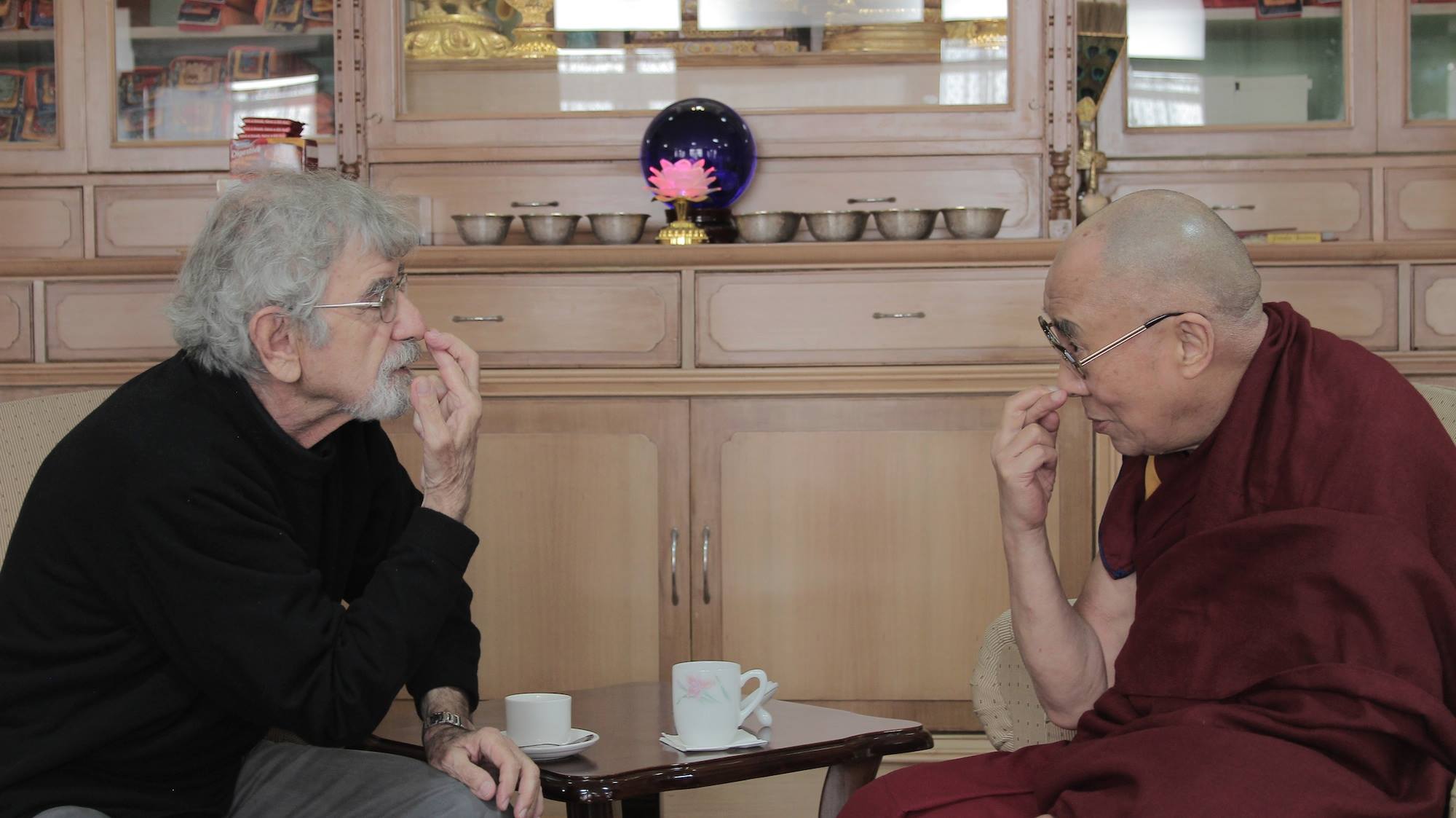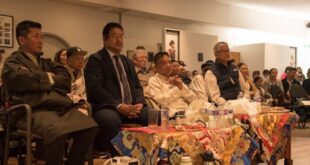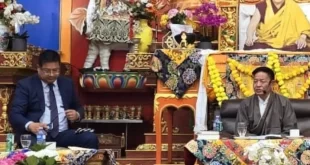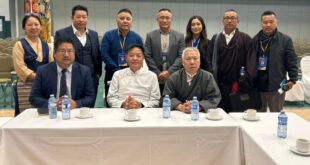New Delhi, India 20 December 2013
For the second day today, His Holiness the Dalai Lama met with a Chilean delegation led by 85 year old biologist and philosopher Humberto Maturana, who was teacher and collaborator with His Holiness’s good friend Francisco Varela. He is also the scientist who His Holiness often quotes as having advised him that he tries not to get attached to his field of research because to do so spoils your objectivity.
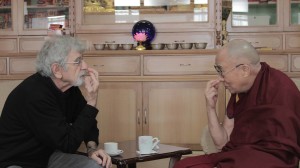
Today, Dr Maturana wanted to talk about what kind of beings we are in terms of biology, science and understanding. He said that when we investigate, we find we are living beings. We find ourselves living in families, in communities and acting together. We also have language to coordinate our actions and feelings, but when we look to see what we are made of, we find the answer is molecules. His Holiness interjected that plants and trees also consist of molecules like us and yet they have no language; why? He further asked what the difference is between plants and mammals with no language and Dr Maturana replied that the difference lies in their manner of living. He added that as far as we know only human beings have language. As the conversation turned to emotions, His Holiness pointed out that emotions are not necessarily connected with the use of language. To His Holiness’s question whether the mind is a separate entity, Dr Maturana replied that it is not, but it exists in relation to the brain, which prompted His Holiness to recall another scientific friend, Wolf Singer’s observation that there seems to be no central control of the brain.
Another young member of the delegation asked His Holiness for a message to those attending a meeting for peace in Chile next year. He said:
“Everyone wants a happy life, a meaningful life. In order to achieve this goal our practice should be realistic. No matter what our motivation may be, if we are not realistic we will not fulfil our goal. We need a sense of belonging to one humanity, respecting the rights and views of others. Whenever conflict arises we must try to settle it through compromise and negotiation.”
There followed a conversation with several Russian journalists who asked a range of questions beginning with what can be done to bridge the gap between rich and poor. His Holiness replied that this is one of the most serious questions today and that something must be done.
“Not only in India, but in the USA, Russia and China the gap between rich and poor is increasing. This is not only morally wrong, but from a practical point of view a source of trouble. There are two sides to its solution: the rich need to offer help, but the poor must also make an effort. Anger and frustration will solve nothing.”
Asked about strife in the Middle East, particularly the fighting in Syria, he attributed them to mistakes committed in the last century when the prevailing view was that problems are best solved by the use of force. Today, people are beginning to realise that problems can in fact only be solved through dialogue. Another question suggested that the way some people exploit others is similar to the savage way some animals eat each other. His Holiness remarked that it is because of a lack of moral principles, adding that ethics are not something sacred but something realistic. He recommended that people should have a sense of belonging to one humanity, seeing each other as brothers and sisters.
“Thinking only of ourselves and neglecting others brings trouble. Being truthful, honest and transparent brings inner strength and others’ trust. You’ll find yourself free of stress and anxiety.”
Asked how to balance government policy with individual freedom, His Holiness repeated what he has said often before that the world belongs to humanity not leaders or rulers. Democracy is the best system of government because leaders are not only chosen by the people, but remain accountable to them. Regarding national identity, he said that stressing it too much detracts from our sense of our common humanity and tends to encourage a sense of ‘them’ and ‘us’. As for dialogue between religions, he said that the idea of one truth, one religion is true in the context of an individual’s faith and practice, but in terms of the wider world we need to acknowledge several truths and several religions and foster respect among them.
One of the journalists told His Holiness about his friend who is poor, has five children and whose wife is dying of cancer. He wanted to know where he can find strength. His Holiness replied:
“Very sad. But if he only thinks of his own troubles these unbearable feelings tend to increase. On the other hand if he thinks of the many other people who are in a similar or far worse situation, it can bring some relief. The important thing is to take a realistic approach.”
A documentary film maker talked about a film she is involved with that focuses on the alarming slaughter of elephants in Africa for their ivory tusks for which there is said to be a booming market among Buddhists in Asia. His Holiness told her that such problems are best solved by education and her documentary will make a valuable contribution to educating the public at large.
Asked whether it’s acceptable to tell ‘white lies’, His Holiness cited the traditional example of a monk and a hunter. The hunter is in pursuit of a wild animal and comes across a monk who he asks where the animal went. Because of the harm that would ensue, this is a case in which the monk would be wrong to tell the truth. Similarly, when asked whether it can ever be acceptable to steal or sell drugs to support your family, His Holiness responded that you have to judge for yourself whether supporting your family justifies ruining someone else’s life.
The conversation concluded with His Holiness saying he looked forward to seeing the significant contribution the Russian Federation can make to the world, expressing his appreciation that Russia has officially recognised four religions, the Russian Orthodox Church, Islam, Judaism and Buddhism. The journalists in turn looked forward to a time when they will be able to welcome His Holiness to Russia once again.
Tomorrow, His Holiness begins three days of Buddhist teachings requested by Russians, when he resumes an explanation of Shantideva’s ‘Guide to the Bodhisattva’s Way of Life’ that he began last year.
